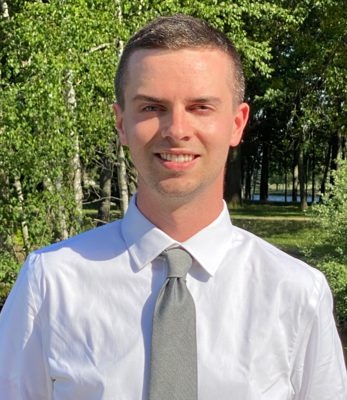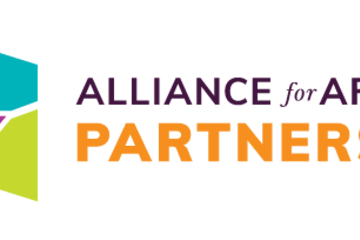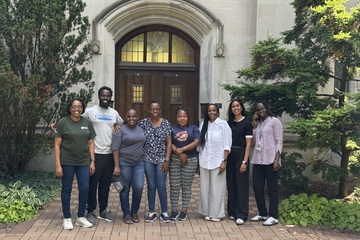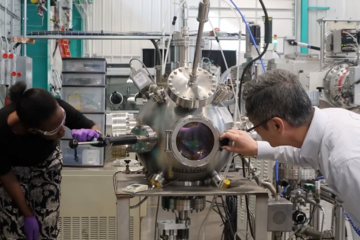
Justin Rabineau
(Michigan State University)
Program Manager
Alliance for African Partnership
Capacity Building
Climate Change
Conservation
Education
Equity
Linguistics
Partnership
Policy
Renewable Energy
Sustainability
Alliance for African Partnership (AAP) welcomes the largest cohort yet of African Futures Research L
Fourteen scholars from across the AAP consortium are embarking on a year-long program focused on artificial intelligence and sustainable futures
East Lansing, Michigan — Alliance for African Partnership (AAP), a consortium of ten leading African universities, Michigan State University (MSU), and a network of African research institutes, is pleased to announce the sixth cohort of the African Futures Research Leadership Program, a competitive visiting scholar initiative supporting early career researchers from AAP member institutions. This year’s cohort — the largest in the program’s history — will explore the theme Artificial Intelligence in Africa: Transdisciplinary Innovations for Sustainable Futures.
Each scholar is paired with mentors from their home institutions and MSU for one year of impactful research, professional development, including curriculum innovation, scholarly and policy writing, grant proposal development, as well as conference attendance. Scholars will engage both virtually and in person with mentors and colleagues across disciplines to co-create research that advances sustainable futures across the continent.
“This sixth cohort marks a significant turning point for the African Futures Research Leadership Program,” said Jose Jackson-Malete, co-director of the Alliance for African Partnership. “Welcoming our largest and most interdisciplinary group of scholars to date highlights both the rising demand for collaborative research leadership opportunities and the strength of our partnerships across African institutions. The focus on artificial intelligence and sustainable futures also signals how the program continues to evolve to address emerging global and continental priorities while empowering scholars to lead transformative research in their fields.”
This year’s scholars are:
Patrick Wafula Wamalwa– Agricultural Engineering, Egerton University
Evalyn Wanjiru Mwihia– Veterinary Pathology, Microbiology and Parasitology, Egerton University
Florence Ndibuuza– Higher Education, Makerere University
Evah Maina– Pharmacy and Health Sciences, United States International University – Africa
Keiphe Nani Setlhatlhanyo– Industrial Design and Technology, University of Botswana
Bakadzi Moeti– Educational Foundations, Faculty of Education, University of Botswana
Thabang Madigoe– Business Management, University of Pretoria
Sean Kruger– Economic and Management Sciences, University of Pretoria
Sphiwe Skhosana– Natural and Agricultural Sciences, University of Pretoria
Daurice Nyirongo– Open, Distance and eLearning (ODeL), Lilongwe University of Agriculture and Natural Resources
Elhadji Bassirou Toure– Mathematics and Computer Science, Université Cheikh Anta Diop
Nedson Theonest Kashaija– Water Resources Engineering, University of Dar es Salaam
Fochi Amabilis Nwodo– Property Law, University of Nigeria, Nsukka
Salimatou Traoré– English, Université Yambo Ouologuem of Bamako
The program will begin in February 2026 with virtual collaboration, followed by an in-person residency for nine of the scholars at MSU from August through December 2026, and continued virtual engagement into early 2027. Due to new visa restrictions, five scholars will participate virtually during the entire program. Scholars will receive a small grant for research, teaching, and professional development, including conference participation and publication support, as well as a stipend during their MSU residency along with visa and travel support.
AAP aims for this cohort to generate innovative research aligned with AI’s potential to contribute to sustainable development in Africa — from health and education to environment, culture, governance, and entrepreneurship — and to lay the groundwork for long-term academic partnerships and future funding opportunities.
For more information, visit the Alliance for African Partnership website.
This project is made possible with the philanthropic support of Carnegie Corporation of New York
By:
Justin Rabineau
Wednesday, Feb 18, 2026
AGRI-FOOD SYSTEMS
+6

Leave a comment
African Futures Cohort 5 Arrives at MSU
Alliance for African Partnership (AAP), a consortium of ten leading African universities, Michigan State University (MSU), and a network of African research institutes, is excited to welcome the fifth cohort of the African Futures Research Leadership Program to MSU for the in-person portion of the program. Each early career scholar is paired with a faculty mentor from MSU and their home institution for one year of virtual and in-person collaboration to strengthen research skills, innovations in teaching, writing of scholarly and/or policy publications, dissemination of research results and grant proposals.
A consortium-wide initiative, the African Futures program is designed to strengthen the capacity of a cadre of African researchers to return to their home institutions and become scientific leaders in their community, establish long-term partnerships with MSU faculty, co-create innovative solutions to Africa’s challenges, and in turn become trainers of the next generation of researchers.
African Futures Cohort 5: Alfdaniels Mabingo Performing Arts and Film Makerere University Home Mentor - Sylvia Antonia Nakimera Nannyonga-Tamusuza, Dept of Performing Arts and FilmMSU Mentor – Philip Effiong, Dept of English, Theater Studies & Humanities & Gianina Strother, Dept of African American and African Studies Gladys Gakenia Njoroge Pharmacy Practice and Public Health United States International University – Africa Home Mentor - Calvin A. Omolo, Dept of Pharmacy Practice and Public HealthMSU Mentor - Yuehua Cui, Dept of Statistics and Probability Seynabou Sene Plant Biology University Cheikh Anna Diop Home Mentor - Abdala Gamby Diedhiou, Dept of Plan BiologyMSU Mentor - Lisa Tiemann, Dept of Plant, Soil, and Microbial Sciences Portia T. Loeto Educational Foundations (Gender Studies Section) University of Botswana Home Mentor - Godi Mookode, Dept of SociologyMSU Mentor - Soma Chauduri, Dept of Sociology Betina Lukwambe Aquaculture Technology University of Dar es Salaam Home Mentor – Samwel Mchele Limbu, Dept of AquacultureMSU Mentor - Abigail Bennett, Dept of Fisheries and Wildlife & Maria Claudia Lopez, Dept of Community Sustainability Assilah Agigi Business Management University of PretoriaHome Mentor - Alex Antonites, Dept of Business Management MSU Mentor - Sriram Narayanan, Dept of Supply Chain Management Miriam Nthenya Kyule Agricultural Education and Extension Egerton University Home Mentor - Miriam Karwitha Charimbu, Dept of Crops, Horticulture and Soils MSU Mentor - Susan Wyche, Dept of Media and Information Studies Asha Nalunga Agribusiness and Natural Resource Economics Makerere University Home Mentor - Bernard Bashaasha, Dept of Agribusiness and Natural Resource Economics MSU Mentor - Saweda Liverpool-Tasie, Dept of Agricultural, Food, and Resource Economics
Ezinne Ezepue (participating virtually)Theatre & Film Studies University of Nigeria, Nsukka Home Mentor - Chinenye Amonyeze, Dept of Theatre & Film StudiesMSU Mentor - Jeff Wray, Dept of English
“We were extremely impressed with the quality and diversity of applications we received for this cohort of the African Futures program. We are excited to build on the successes of past cohorts and continue to evolve this program as we support the next generation of African research leaders,” said Jose Jackson-Malete, co-director of the Alliance for African Partnership.
Differing from previous cohorts, Cohort 5 is piloting a hybrid model of the African Futures program. The scholars began their work in February 2025 virtually, then will spend the fall semester at Michigan State University working closely with their MSU mentor. They will then complete the rest of their year back at their home institution, culminating in a research showcase in February 2026 to share the research they’ve done. Partnerships between mentors and mentees are expected to continue beyond the end of the program and lead to sustainable collaboration and future funding opportunities.
For more information, visit the Alliance for African Partnership website
By:
Justin Rabineau
Thursday, Sep 4, 2025
AGRI-FOOD SYSTEMS
+6

Leave a comment
Higher Education, Geopolitics, and Sustainable Development in Africa
Amid shifting geopolitical and policy landscapes in the U.S., uncertainties have emerged that may impact global education and research collaborations. While the full implications of these changes remain unclear, higher education institutions must remain steadfast in their mission to promote knowledge, collaboration, and sustainable development.
Alliance for African Partnership (AAP) in collaboration with the African Studies Center, Michigan State University are pleased to invite you to the AAP Public Dialogue on Higher Education, Geopolitics, and Sustainable Development in Africa. Join us as our expert panel discuss the contributions of African higher education institutions in transformative research, policy shaping, crisis leadership, and actionable strategies for strengthening the higher education sector amid these uncertainties, while advancing the 2030 Agenda for Sustainable Development.
Panelists:
Tawana Kupe – Visiting Research Scholar, Michigan State University
Amalia Uamusse – Deputy Vice Chancellor, Eduardo Mondlane University
David Norris – Vice Chancellor, University of Botswana
Mwenda Ntarangwi – Vice Chancellor, USIU-Africa
By:
Justin Rabineau
Wednesday, Mar 12, 2025
EDUCATION
Leave a comment
AAP announces 8 new PIRA partnership awards
Alliance for African Partnership (AAP), a consortium of ten leading African universities, Michigan State University (MSU), and a network of African research institutes, is excited to announce the recipients of the 2024 Partnerships for Innovative Research in Africa (PIRA) seed funding. Each team is composed of at least one lead from an AAP African member institution and one MSU lead. Some teams also include additional partners from NGOs and/or other universities from outside of AAP’s consortium. A consortium-wide initiative, PIRA grants are a tiered funding opportunity designed to cultivate and support multidirectional and transregional research partnerships at any stage of their development, whether it be initiatives to explore and create new relationships or scale existing ones. The total amount of PIRA grants awarded in 2024 is over $500,000.
Awarded projects cover diverse disciplinary perspectives and span AAP’s seven priority areas:
Agri-food systems
Water, Energy and Environment
Culture and Society
Youth Empowerment
Education
Health and Nutrition
Science, Technology and Innovation
All projects will integrate gender, equityand and inclusion issues in all stages of the project.
This year’s winning projects include:
Towards the Implementation of Smart Villages in the Rural Communities of Taraba State in Nigeria
Research leads: Shanelle N. Foster (MSU), Chidimma Frances Igboeli (University of Nigeria, Nsukka), Mbika Mutega (University of Johannesburg), Sari Stark (University of Lapland)
Institutional partners: Michigan State University (College of Engineering), University of Nigeria, Nsukka, University of Johannesburg and University of Lapland
Funding tier: Scaling grant (up to $100,000)
Green Technology Extraction and Characterization of Bioactive Components from Edible Fruits of Vitex donania and Uvaria chamae
Research leads: Leslie D. Bourquin (MSU), Insa Seck (UCAD)
Institutional partners: Michigan State University (College of Agriculture & Natural Resources), Universite Cheikh Anta Diop
Funding tier: Planning grant (up to $50,000)
Qi Hua Fan of MSU (left) and Tabitha Amollo of Egerton University (right) working in their solar cell lab.
Develop a Partnership for Renewable Energy Research and Education
Research leads: Qi Hua Fan (MSU), Tabitha Amollo (Egerton)
Institutional partners: Michigan State University (College of Engineering), Egerton University
Funding tier: Scaling grant (up to $100,000)
Bridging the Gap: Strengthening Research, Management and Community Alliances in South Africa’s Largest Coastal Marine Protected Area
Research leads: Amber K. Peters (MSU), Els Vermeulen (UP), Grant Smith (Sharklife)
Institutional partners: Michigan State University (College of Agriculture and Natural Resources), University of Pretoria, Sharklife Conservation Group
Funding tier: Planning grant (up to $50,000)
Changing Public Attitudes and Behaviors of Buying Counterfeits through Evidence-Based Education and Awareness-Raising Campaigns in Kenya
Research leads: Saleem Alhabash (MSU), Maureen Kangu (USIU), Robi Koki Ochieng (USIU), John Akoten (Anti-Counterfeit Authority)
Institutional partners: Michigan State University (College of Communication Arts & Sciences), United States International University-Africa, Anti-Counterfeit Authority
Funding tier: Planning grant (up to $50,000)
Leveraging Tourism and Hospitality Ecosystems to Expand Youth Entrepreneurship and Empowerment in Botswana
Research leads: Karthik Namasivayam (MSU), Mokgogi Lenao (UB)
Institutional partners: Michigan State University (Broad College of Business), University of Botswana
Funding tier: Planning grant (up to $50,000)
Children attending Pre-school in Tanzania benefit from the research project of Bethany Wilinski of MSU and Subilaga M Kejo of University of Dar es Salaam.
Tucheze Pamoja: Co-Creating Feasible and Sustainable Play-based Learning Approaches in Tanzania
Research leads: Bethany Wilinski (MSU), Subilaga M Kejo (UDSM)
Institutional partners: Michigan State University (College of Education), University of Dar es Salaam
Funding tier: Scaling grant (up to $100,000)
Promoting Science Communication and Engagement through Training and Digital Media Platforms
Research leads: Susan McFarlane-Alvarez (MSU), Dikabo Mogopodi (UB)
Institutional partners: Michigan State University (College of Communication Arts and Sciences), University of Botswana
Funding tier: Planning grant (up to $50,000)
“We were extremely impressed with the quality and diversity of proposals we received for this cycle of the PIRA program. The projects that were awarded all embody AAP’s commitment to innovation, equitable partnership, and our shared vision of transforming lives in Africa and beyond,” said Amy Jamison, co-director of the Alliance for African Partnership.
A unique aspect of PIRA grants is the expectation that institutions will establish and develop equitable partnerships from conception to close out of their respective projects. These equitable partnerships will be among the research team members themselves and include relevant local stakeholders. Teams will involve these local stakeholders as appropriate throughout the project, respecting their knowledge and expertise, and taking an adaptive approach that is responsive to the local context.
We invite you to join our virtual PIRA launch and showcase event at 8 a.m., Tuesday, Feb. 25 when all of our awardees will be discussing their projects. You can register for the event on Zoom.For more information, visit the Alliance for African Partnership website.
By:
Justin Rabineau
Monday, Jan 27, 2025
AGRI-FOOD SYSTEMS
+6

Leave a comment
Multidimensional impact of environmental change in the African Great Lakes
Recorded on March 24th, 2023 as part of AAP Public Dialogue Series
By:
Justin Rabineau
Monday, Jan 27, 2025
WATER, ENERGY, AND THE ENVIRONMENT
Leave a comment
Leveraging Demand Driven Research for Evidence Based Policymaking and Program Development
Recorded on June 2nd, 2023
By:
Justin Rabineau
Monday, Jan 27, 2025
CULTURE AND SOCIETY


Leave a comment